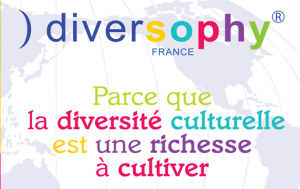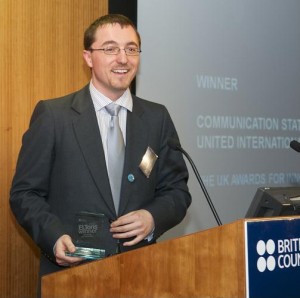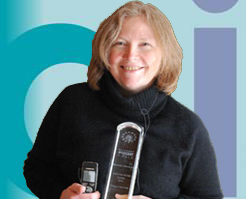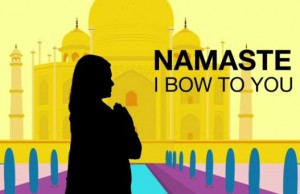![]() In this show we’ll be going to Ireland and asking if multi-culturalsim is dead then what should replace it? We’ll also be hearing from another Irish man, Robert O’Dowd, based in Léon, Spain about the added value of multimedia when doing online intercultural exchanges and from two of the current participants in the Podcasting course offered by The Consultants-E. I’ve been tutoring various online courses there and it has often struck me how intercultural these EFL teachers are and so this time I took the opportunity to find out more about them. For example I discovered one of the issues facing female Saudi students who want to study abroad.
In this show we’ll be going to Ireland and asking if multi-culturalsim is dead then what should replace it? We’ll also be hearing from another Irish man, Robert O’Dowd, based in Léon, Spain about the added value of multimedia when doing online intercultural exchanges and from two of the current participants in the Podcasting course offered by The Consultants-E. I’ve been tutoring various online courses there and it has often struck me how intercultural these EFL teachers are and so this time I took the opportunity to find out more about them. For example I discovered one of the issues facing female Saudi students who want to study abroad.
absolutely failed
But we’ll begin with Stephen Spillane in Ireland, a political blogger whose latest post made me want to find out more. Stephen was picking up on the backlash against multiculturalism which is spreading across Europe and made an interesting suggestion about what to replace it with. So let’s hear Stephen explain why multiculturalism has absolutely failed. Soon after I had spoken with Stephen my eye was caught by a recent report with the headline Employers looking for global awareness in young recruits, which is a kind ofpositive reply to the negative comment Stephen got to his post, and tells us that intercultural awareness is a sought after quality by employers. You can find the link to that report here.
absolutely global
In my work with The Consultants-E helping English teachers integrate technology into their everyday practice I have met (virtually of course) many interesting people. Usually the teachers fall into two categories; either they teach gloriously mixed classes in their home country or they are the ones who have moved to teach in a new culture. So in our next category, absolutely global, we are going to meet two teachers from my current podcasting class as I thought it only right for them to experience podcasting from a different perspective. First I talked with Janice Ford, an Australian based in Sydney who has taught English to students from all over the world. Janice talked to me about some of the nice moments with her international groups. I then spoke with Samah Thabet, an Egyptian woman who has been teaching in Saudi Arabia or KSA, for the last four years. I was curious about Samah’s students also. In fact my chats with Janice and Samah and others from my course were much longer so watch out for more from them in later shows. If you would like to practice your English you can try the dictation based on a short extract from this category at Listen & Write.
absolutely social
In our final category I am bringing you an extract from a free webinar offered by the Language Learning and Social Media project on the topic of social media and interculturality. Entitled Give interculturality a chance – Can social media make a difference?” I was one of the invited speakers and you can access my recorded slideshow at SlideBoom. The webinar featured Fred Dervin from Finland and Christine Develotte from France who presented some very interesting statistics about the use of social media and Liang Wang from the Open University in Milton Keynes in the UK who talked about the social media habits of Chinese students. The webinar also included a presentation by Robert O’Dowd based in Léon, Spain who talked about the multimedia exchange between his Spanish students and a group in the USA. Does multimedia help to raise intercultural awareness in an online exchange? So if Robert O’Dowd’s comments have whetted your apetite then you can find the link to the whole webinar here.
Thanks very much to everyone who took part in today’s show. We couldn’t do it without you! If you have any comments, criticisms or suggestions then please add a comment here on the blog.
Our next show will be coming to you from Dr. Laurent Borgmann in Germany on 5th August 2011
The host of this show is: Anne Fox
Editor: Markus Scherer







